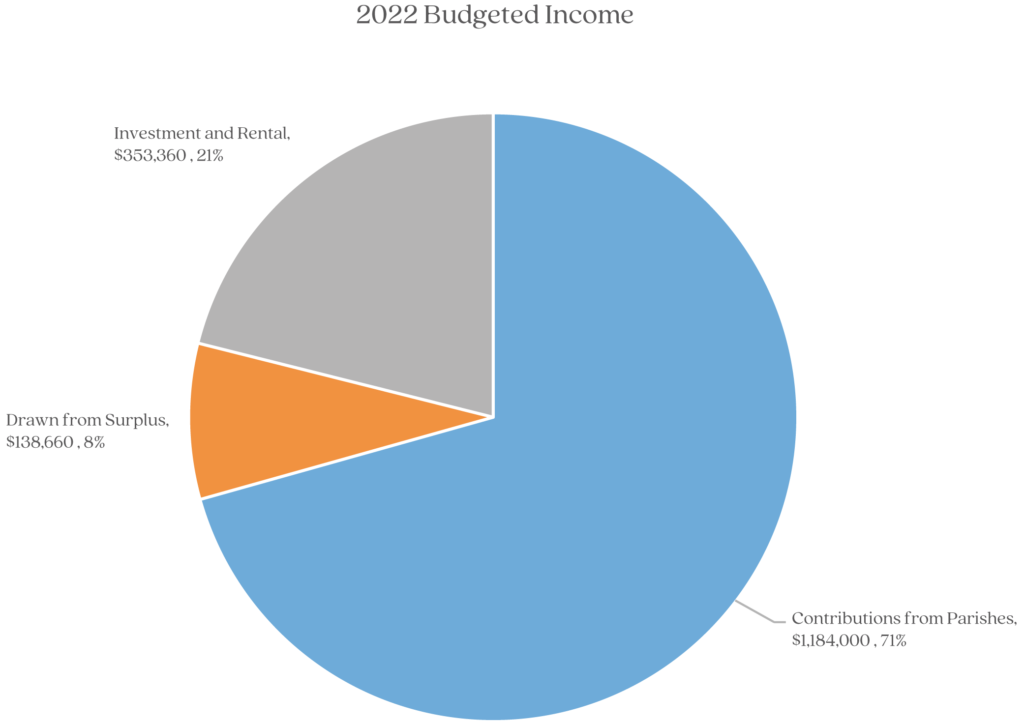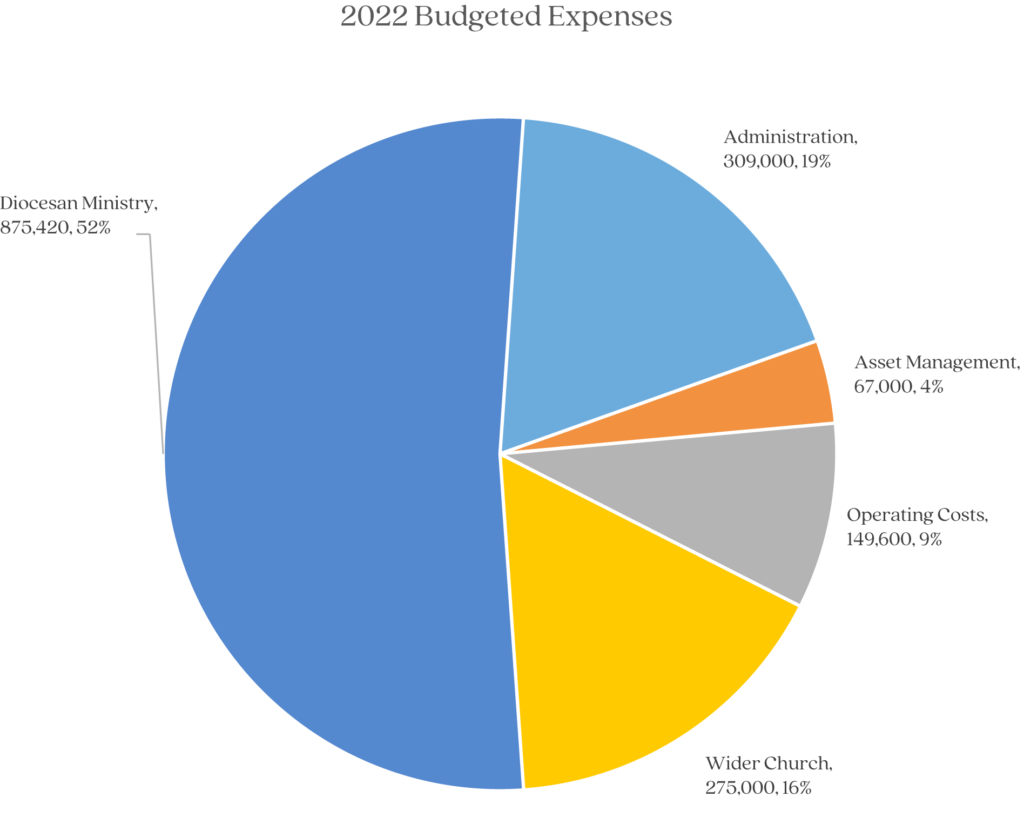The diocesan council (DC) met for two hours via Zoom on Thursday, Jan. 27, and approved the 2022 budget. DC also reviewed a draft human resources policy manual from the HR manual task force, established by the bishop in 2021. Based on a recommendation from this task force, DC approved a change (effective 2023) to clergy vacation time, which will include five weeks of vacation after five years in ministry (from ordination) and six weeks after ten years. This effectively brings the diocesan vacation policy in line with other dioceses across Canada. The diocesan compensation committee will further develop the HR manual in the coming months and will make future recommendations regarding compensation.
In her opening remarks, Bishop Anna also shared with the council that in 2022 Gail Gauthier, finance officer for the diocese, and Barry Foster, executive officer, will both retire, leaving vacant two senior positions in the diocese. With several staff changes having already taken place in 2021, including a new bishop, this presents an opportunity to evaluate synod office operations for a post-pandemic church context. Over the coming months, the staff team and others in diocesan leadership will determine how to prioritize and organize the workload in anticipation of a rapidly evolving ministry context.
Finances
Gail Gauthier reported that the process of winding up the parish-synod linked banking is progressing and should be completed by the end of March, simplifying parish banking procedures and making it possible for parishes and the synod to accept e-transfers.
The 2022 budget has a projected deficit of $138,660 which will be funded from diocesan reserves. See more information about the 2022 budget in the pie charts and budget summary in this issue.
Transforming Futures
At its November meeting, diocesan council approved suspending the fundraising portion of Transforming Futures, considering the shifting reality brought about by the pandemic. The synod received $116,295 from Transforming Futures between 2019 and 2021, which was used towards vision implementation work. Walter Stewart will continue, along with the bishop, as co-chair of Transforming Futures. Stewart will work with Brendon Neilson, diocesan vision animator, to assist parishes in identifying how they are and will live out the diocesan vision in their context.
At its January meeting, DC passed a motion that all funds received by parishes for Transforming Futures from Jan. 1, 2022, be retained 100 per cent by the parish for the parish’s Transforming Futures case implementation and related projects.
Budget
Forecasting continues to be a difficult task as the pandemic lingers on. In January, diocesan council passed a $1.7M budget for 2022 with $138,660 deficit. The deficit will be funded from diocesan reserves.
Parishes continue to have diminished rental revenue in the face of the pandemic and giving has also been impacted with loss of parishioners. Diocesan assessment revenue for 2022 (based on 2020 parish operations) will be approximately $200,000 lower than the previous year. New for 2022, the national assessment expenditure has been aligned with the same percentages the diocese applies to parish assessments (16.5 per cent and 10 per cent on bequests).
No monies have been budgeted to Transforming Futures and, as effective Jan. 1, 2022, funds received by parishes will be retained 100 per cent by the parish for the parish’s Transforming Futures case implementation and related projects.
The diocesan commitment of $60,000 for the refugee program is partially funded from an unspent 2021 allocation carried forward and a Victoria Foundation grant. Expect savings of $20,000 from the wind up of the linked banking system. Cemetery management started in late 2021 and will have an expected cost of $12,000.





